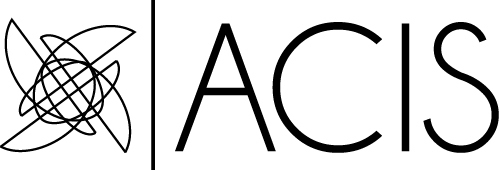
The three-panel “Ecology” series—“Food, Space and Biopolitics,” “Climate Change and the Anthropocene,” and “Energy, Networks and Built Environments”—offered a glimpse of the novel and diverse critical possibilities enabled by commingling Irish Studies with Ecocriticism, as it is broadly understood.
Anna Ryan (U of Limerick), Thomas Fisher (National U of Ireland Galway), Sorcha O’Brien (Kingston U), and McKayla Sutton (Marquette U) each discussed the modernization of the natural landscape by human-made infrastructure, like airports, railways, and the Shannon Scheme, to name a few. This laying of modernity onto the land, Ryan argued, led to subsequent cultural, political, and social transformation, inaugurating a new relationship with space and time as formerly far-away places became more immediately accessible. Fisher explored the rail’s complicity in Empire; not only was Dublin now penetrable by the imperial network developing in Britain, but as routes were built through Ireland to ports on the west, colonies across the Atlantic became newly proximate. For her part, O’Brien discussed the impact of German engineering on the construction of the hydroelectric power station on the River Shannon and argued that the Shannon Scheme should be understood as the material negotiation of post-colonial power relationships. Like Fisher’s, O’Brien’s project foregrounded the porousness of an always-already networked modern Ireland, and her emphasis on the physical endurance of infrastructure was further suggestive of de-essentialization: Ireland is forever locked into global relationality, and even the mythic beauty of its landscape is brought to crisis in the face of human-made technologies aimed at controlling nature. Taken together, these authors' projects respond compellingly to the conference theme of “Latitudes,” prompting a thinking-away from Ireland as self-contained and “natural.”
But can nature ever actually be controlled by humans? At the richly interdisciplinary “Ireland and Ecocriticism” conference at University College Cork (19-21 June), Yvonne Scott (Trinity College Dublin) examined artistic portrayals of ruins in the Irish landscape, demonstrating that built space cannot always be counted on to uphold a boundary between interior and exterior, human and natural. Malcolm Sen (National U of Ireland Maynooth) addressed this illusory boundary in his stirring ACIS-CAIS paper, “Imagining Futurity: Climate Change, Sovereignty and Narrative Affect,” which exhorted the audience to forge a new relationship with the planet, one that privileges an ecological over an economic lens. The logic of neoliberal capital of which Sen spoke recalled Scott’s contemporary images of the “ghost estates”—the hundreds of unoccupied housing units built during the latest installment of Irish modernization, the Celtic Tiger—as well as the partially-constructed and abandoned Anglo Irish Bank Headquarters on Dublin’s North Wall Quay. The global market order is complicit not only in Tiger excess and subsequent economic fallout, but also in our current course to potential human extinction at the hands of “the change that is climate change.”
Sen also delivered a paper at the “Ireland and Ecocriticism” conference (as did fifteen other ACIS-CAIS presenters) on sustainability and Finnegans Wake, which tapped into a broader Eco-Joyce zeitgeist; the seven Joyce papers in Cork included “The Phoenix Park in Joyce’s Finnegan’s Wake” by Alison Lacivita (The U of Southern Mississippi), whose monograph on the ecology of Joyce's novel is due out from the University Press of Florida next spring. Also worthy of note on this point is the reception held in the lovely Staff Common Room of the Main Quad North Building to honor the launch of Eco-Joyce: The Environmental Imagination of James Joyce (Cork University Press), edited by Robert Brazeau (U of Alberta) and Derek Gladwin (U of Alberta).
Just as this year’s ACIS-CAIS conference on “Irish Studies in an international context” examined Ireland’s place in wider cultural, socio-economic and historical patterns, so too did “Ireland and Ecocriticism” ask participants to respond to issues which are definitionally global in scope. That is, environmental welfare knows no national boundaries; global warming, for instance, need not present its passport prior to wreaking havoc. Both conferences remind us that Ireland is but one national actor among a planet of others.
